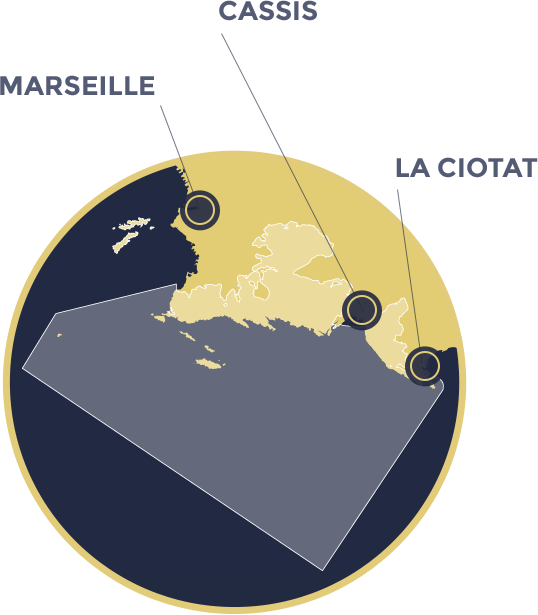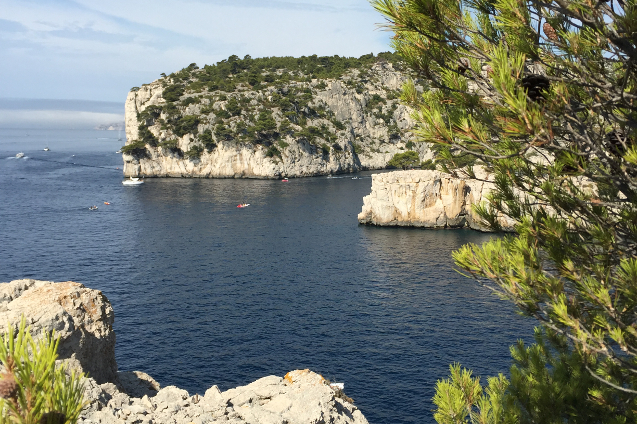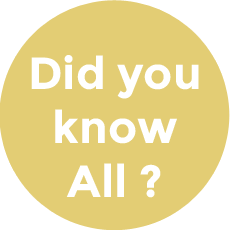Experience nature’s great show...
Before you leave...

Don’t forget to bring :
- some water (at least 1 to 2 litres/pers.)
- sturdy walking shoes
- protection suited to the weather conditions
Bring the IGN map of the Calanques with you (on sale at the Tourist Office)
From 1st June to 30th September access to the Parc des Calanques is regulated by Prefectural Order.
The Calanques National Park
Majestic cliffs, sea as far as the eye can see, exceptional flora and fauna all contribute to the dream scenery of the Parc National des Calanques.
This site, unique in the world, allows nature lovers to make the most of a wide range of activities.
Underwater taking a dive, on the water on a boat trip, or even by land along the hiking paths, the Calanques invite you to explore and discover.
the Calanques on Wikipedia
What if the calanques are closed?
Download the APP Cassis Secrets
Find out all about the Parc National des Calanques

in a few figures
- Birth of the National Park: 18th April 2012 (signing of the decree)
- Location: Bouches-du-Rhône (13)
- Heartland: 8,500 hectares, 3 districts (Marseille, Cassis and La Ciotat)
- Maritime area: 43,500 hectares
- Membership area: 2,630 hectares, 3 districts (Marseille, Cassis and La Penne-sur-Huveaune)
- Adjoining maritime area: 97,800 ha
- Biodiversity: 140 protected terrestrial animal and plant species; 60 heritage marine species
- Number of visitors: about 2 million visitors by land and sea every year
The Parc National des Calanques is :
- the only National Park in Europe that is terrestrial, marine and peri-urban
- the only National Park in the Mediterranean that is continental, insular and marine
- the first National Park to be created in mainland France since 1979, the last three National Parks created are all located overseas
- the 10th French National Park
The Calanques were formed 120 million years ago
To the west of Cassis, the Massif des Calanques consists of white limestone going down more than 400 m.
Marine valleys have been cut out, creating veritable miniature fjords, sometimes sheltering magnificent natural coves.


The Calanques have given an abundance of the magnificent “Cassis stone”, which lies behind this little fishing harbour’s reputation around the world, for building Mediterranean ports (Alexandria, Algiers, Piraeus, Marseille...).
Today, it is used to make decorative objects and souvenirs...
The submarine springs: mysterious rivers…
The Massif des Calanques is a freshwater catchment basin, and the source of great submarine streams of fresh water.
The Calanques, a preserved area that must be protected...
For your safety and the preservation of sensitive sites, please respect the places you pass through, by staying on the paths and bringing your garbage back with you. There are no restaurants, accommodation, water points or other amenities on the hiking paths.
Practical information
Parking around the Calanques:
Relais des Gorguettes car park
Free car park with direct pay shuttle to the entrance to the Calanques, from April to October. Find out more at the Tourist Office.
On foot
The Port Miou Calanque can be accessed in just 30 minutes from the town centre. This is the departure point for many of the hikes through the Calanques.
Car parks on the Route de la Gineste
- 2hrs on foot to En Vau or Port Miou
La Gardiole car park closed
Le Bestouan car park - 15 minutes on foot to Port Miou Pay & display
Paying
La Presqu’île car park - 10 minutes on foot to Port Miou Pay & display in high season
Paying during season
The new regulations
What you can do in the heart of the Park
-
walk with your dog, keeping it on a leash
-
go rock-climbing
-
hike on the signposted paths
-
go mountain-biking
-
pick reasonable amounts of flowers
-
swim
-
leisure activities (sailing, regattas…)
-
gentle water-sports (kayak, stand-up paddle)
-
fish except in the protected areas
-
go scuba diving
What you cannot do in the heart of the Park
-
light a fire
-
smoke
-
damage the site’s natural heritage
-
drive motor vehicles
-
camp or bivouac
-
hunt (less than 200 m from the GR 51 and 98 hiking trails)
-
go extreme mountain-biking
-
go jet skiing, ride water scooters or do other motorised activities
-
fish in the protected areas
-
use electrical or hydraulic assistance devices in the framework of leisure fishing activities
-
go underwater fishing from 1/11 to 31/03 between La Croisette and Cap Morgiou
-
organise leisure fishing competitions



